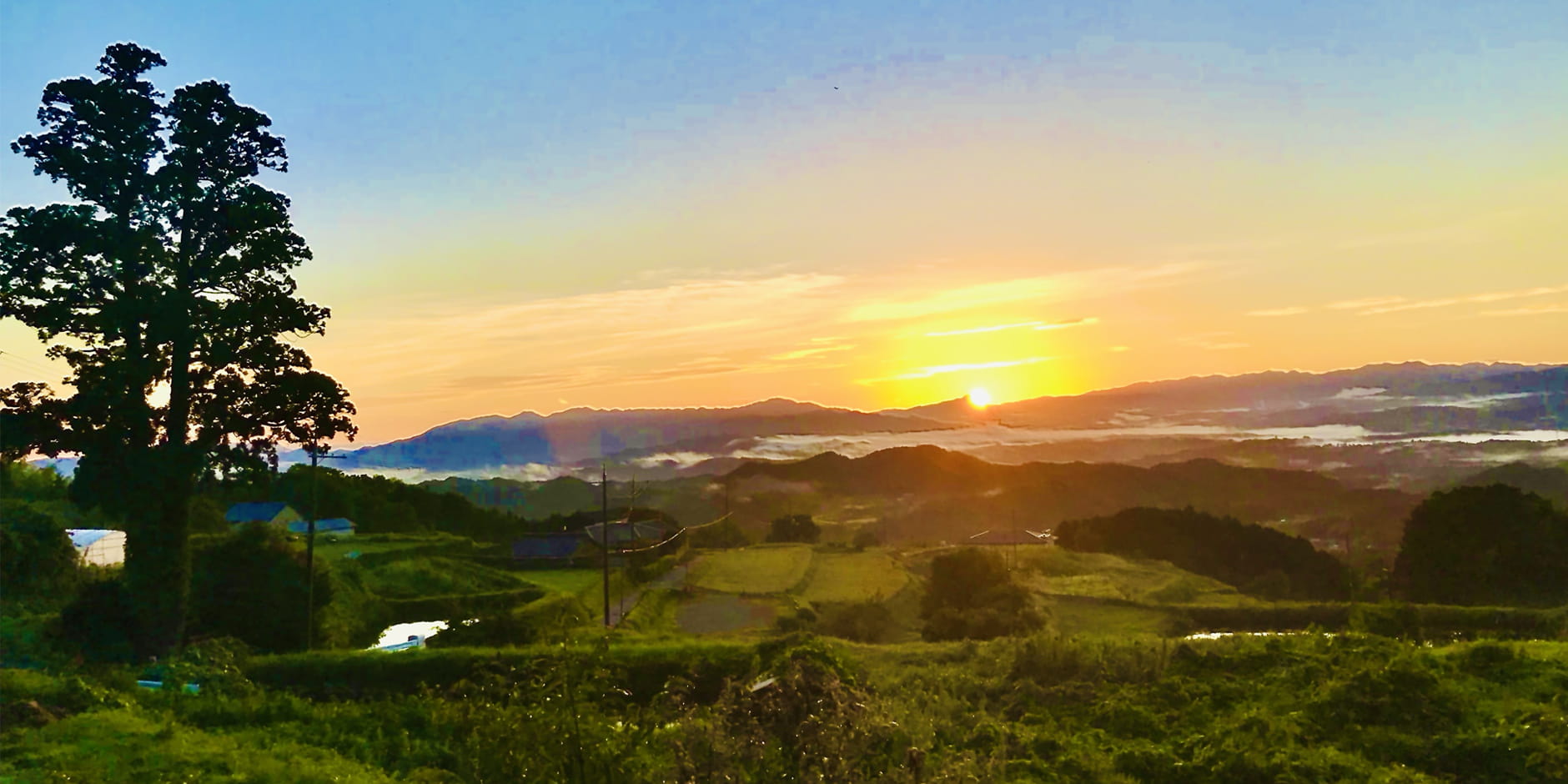
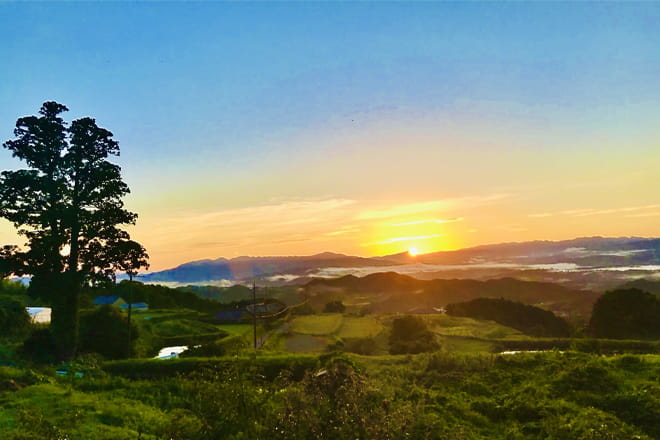
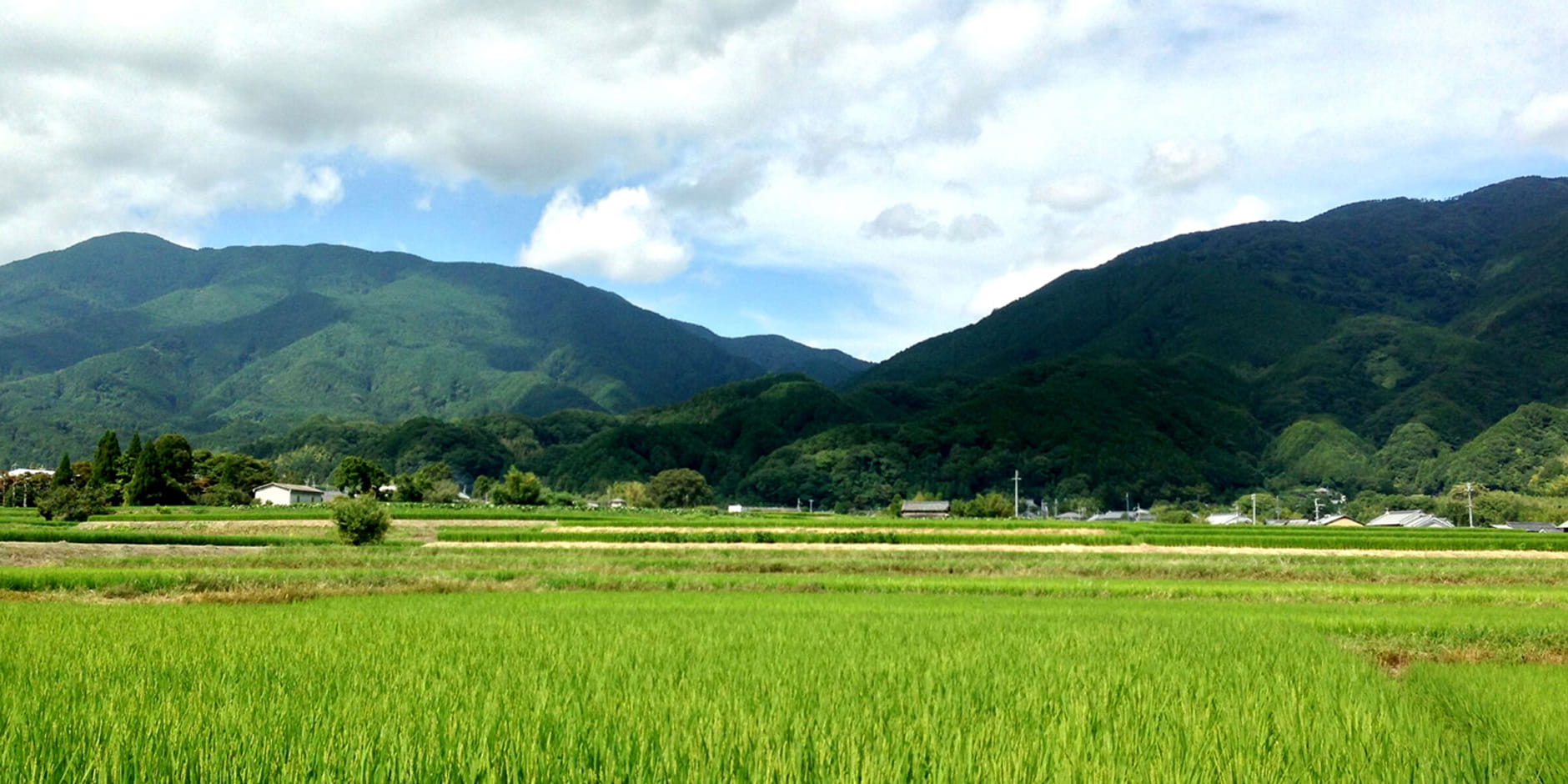
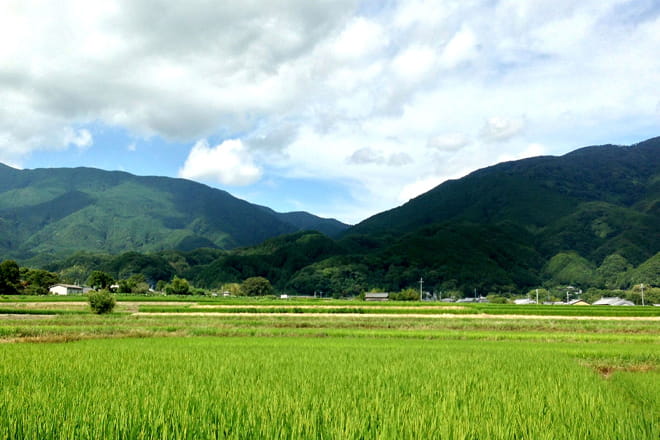
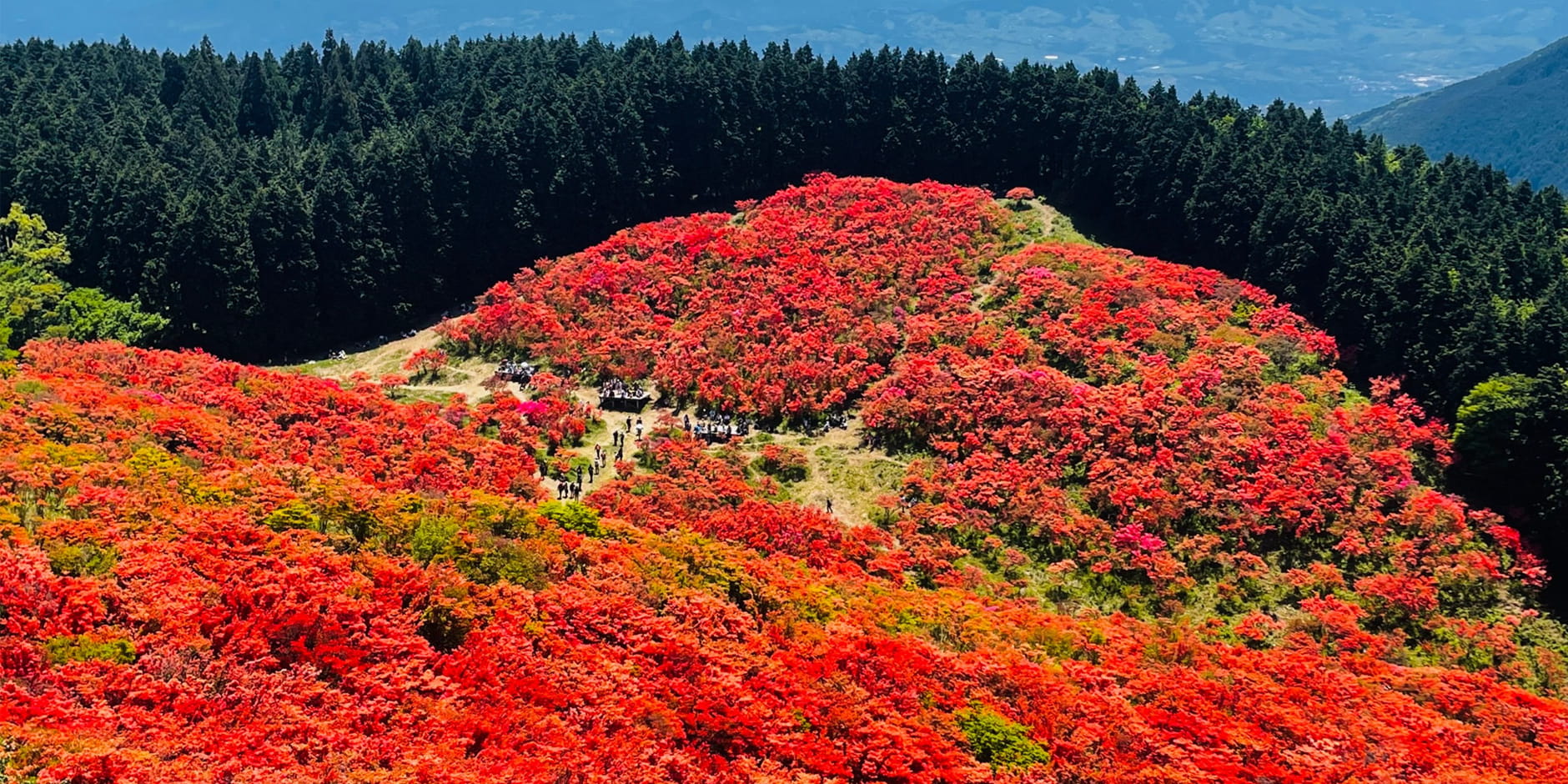
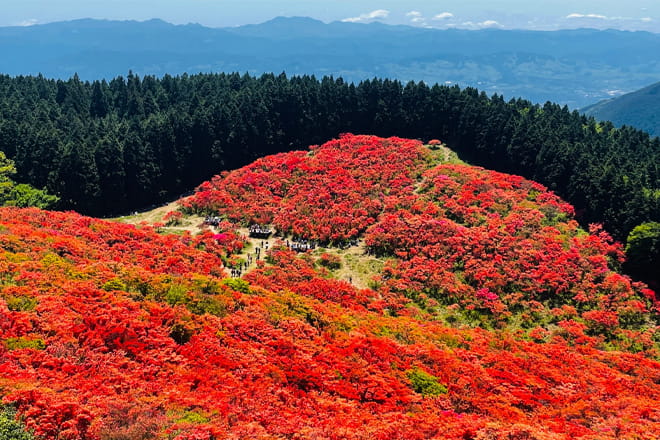
The city of Gose in Nara is where the story of Japan’s beginnings lives on. Dotted across the region are gorgeous landscapes steeped in the mystique of antiquity as well as historical Shinto shrines, burial mounds, and spiritual hot spots. The myth surrounding the accession of Japan’s legendary first emperor, Emperor Jinmu, takes place here, with the tranquil city also being home to two sacred mountains, Mt. Kongo and Mt. Katsuragi. While Mt. Kongo has ties to the semi-legendary mystic En no Gyoja (634–701) and is important in the syncretic ascetic tradition of Shugendo, Mt. Katsuragi is where the semi-mythical Katsuragi clan’s tale unfolds. The ancient Buddhist temple of Kisshosoji, where En no Gyoja was supposedly born, is also located in Gose, providing insights into its deep ties with mountain worship.
The city’s greatest treasure is its people. They live in harmony with nature, smiling and enjoying life as they are. Here in Gose, you’ll encounter landscapes where the people and land are closely intertwined—scenes you won’t find at flashy tourist spots. After all, this journey involves feeling—not just seeing. There are plenty of opportunities to connect with the community and its history. Visit shrines and temples under the gaze of the mountains and cook the old-fashioned way, including preparing rice using well water, firewood, and a traditional cookstove. Or listen to the sounds of the birds and insects and connect with the community through shared activities. During the Edo period (1603–1868), Gose was also an important, well-known stop on the way to Ise Jingu—a major Shinto shrine in Mie—and the spirit of hospitality from those days lives on to this day.
A tradition of consuming foodstuffs like handmade tofu, rice, sake, and vegetables produced thanks to the waters beneath the sacred mountains nearby has endured since time immemorial. They aren’t just for consumption—they represent the very memories of the land itself. Visit long-established shops and taste both the flavors and memories of their products. Participate in the communal cooking of wild vegetables using traditional cookware and prepare all-natural miso paste, one aspect of Japan’s time-honored fermentation tradition. Be sure to savor the traditional local cuisine and fermented foods.
This itinerary highlights foodstuffs born from the land’s blessings—such as rice, vegetables, sake, and soy sauce—nurtured by the nature around the base of the Kongo-Katsuragi mountain range. It also invites you to explore the area’s timeless scenery and visit long-protected historical sites of note like a Shinto shrine, a Buddhist temple, and an ancient kofun burial mound. This is a journey unlike any other, created by weaving together the unique attractions of the area.
Reservation Website URL:
Contact:
Explore the area around the base of the Kongo-Katsuragi mountain range and see the scenery of the entire Nara Basin, an important location from the time of the Yamato Kingship (circa 250 to the late 700s) to the Nara period (710–794)Arrive at Gose-no-Yado Tayumu, your accommodations
This inn boasts an area of 30,000 square meters. The main building features traditional cookware and facilities like an old-school cookstove, a sunken hearth, and a well, with areas for a BBQ and an open-air fire available at the detached building next door, allowing for a variety of outdoor activities. Harvest wild vegetables growing naturally in the fields and soil, then try some communal cooking with traditional cookware. You can also experience various aspects of everyday life, such as trying on kimono or making some matcha.
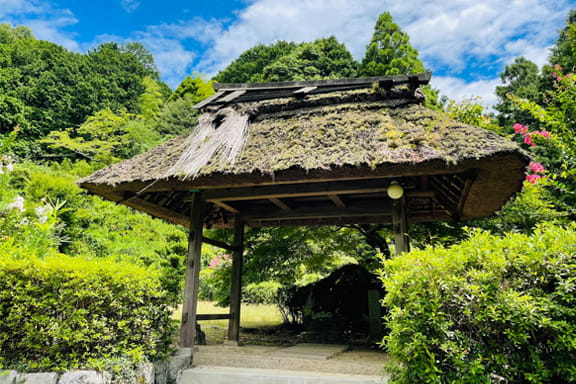
Gather around an open-air fire, eat dinner, and share sake from three Gose breweriesBathe and sleep (relax in the bath at your accommodations or enjoy the various baths available just a 10-minute walk or two-minute drive away at Kamokimi-no-Yu, a natural hot spring facility)
Depart from your accommodationsExperience meditation at the base of Mt. KongoHave a bento for breakfastTour Takamahiko Jinja
At the trailhead of Mt. Kongo, visit a shrine said to be one of the possible sites where, according to Shinto lore, Ninigi no Mikoto—the grandson of the major sun deity Amaterasu Omikami—descended from the heavenly realm of Takamagahara to rule the Japanese archipelago.
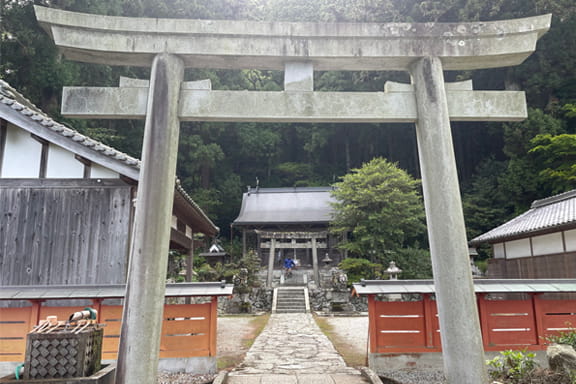
Tour Gamba Farm
This farm is engaged not only in agriculture but also efforts to conserve the rural satoyama ecosystem at the base of Mt. Kongo. Gamba Farm uses organic farming methods to grow sake rice, buckwheat, vegetables, and more and offers agricultural workshops and tours highlighting the unique value of satoyama ecosystems. What makes Gamba Farm even more special is that it’s one of the few farms in Japan licensed to sell alcohol, meaning you can buy sake made from its agrochemical-free sake rice as gifts and souvenirs.
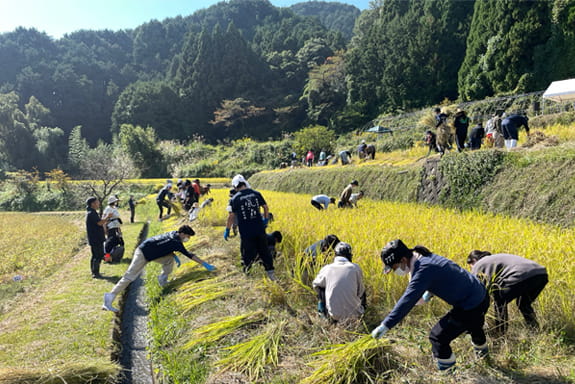
Eat a locavore lunch featuring lots of locally sourced vegetables at the renovated Nagara Postal Gallery and Tegami Café, located in a former post officeSelect an activity from the following three options:•At Katsuragi Brewery at the base of the Kongo-Katsuragi mountain range, listen to the owner explain the sake-brewing process, tour the brewery, and try samples
Katsuragi Brewery is one of Gose’s three breweries. Ever since it was established in 1887, Katsuragi Brewery has been producing famous brand-name sake like Hyakurakumon, crafted from the abundant, crystal-clear groundwater of the Kongo-Katsuragi mountain range—water considered ideal for brewing sake. Its unrefined sake brewed using traditional means is used as offerings at Shinto shrines in the prefecture. Here you can listen to explanations of the sake-brewing process and tour the brewery itself.
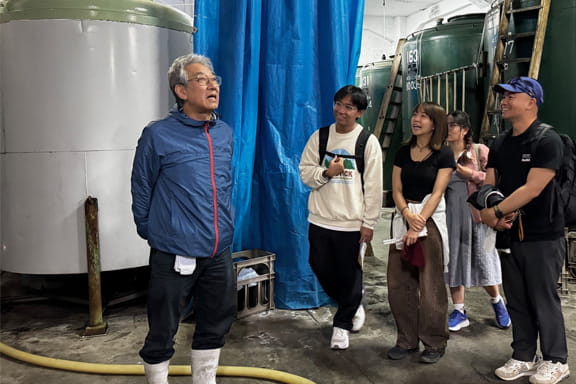
•At Umemoto Tofu, a shop known for making exquisite tofu with particular attention to the soybeans and water used, listen to and interact with its beloved proprietress and try samples
This well-known shop draws not only customers from Gose but also visitors from afar with its fried and non-fried tofu—handcrafted using Mt. Kongo’s groundwater—and receives frequent media coverage. Rather than relying on the same few suppliers, Umemoto Tofu strives to use the finest soybeans from each year’s harvest. Here you can listen to its beloved proprietress talk about its tofu-making facility, try samples, and taste freshly made tofu bursting with the natural flavor of soybeans.
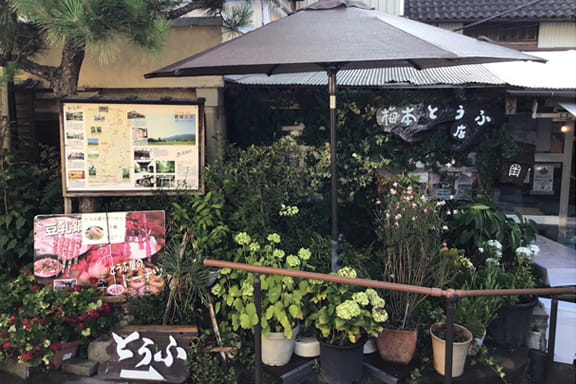
•At Katakami Shoyu, where soy sauce is still made in wooden barrels nearly a century old, experience stirring soy sauce in wooden barrels with a paddle and try samples
Founded in 1931, this soy sauce maker continues to uphold the traditional craft of brewing soy sauce in wooden barrels. Staying true to tradition, it primarily uses Nara-grown soybeans and allows them to ferment and age naturally in giant cedar barrels. Here you can tour its facility where additive-free, unprocessed soy sauce is made and sample different kinds.
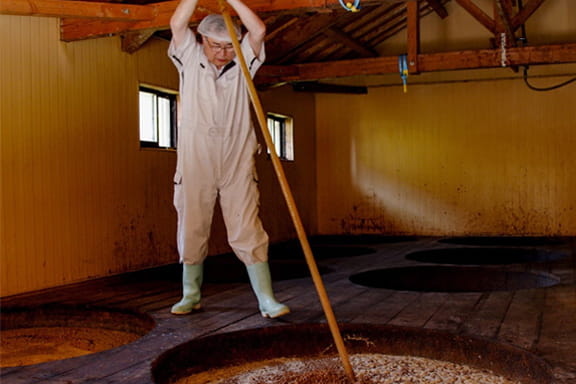
Eat dinner while interacting with local residentsArrive at your accommodations
Eat breakfast in the garden at your accommodationsTour a temple with ties to Gyoki (668–749) and Kobo Daishi (774–835), two historic BuddhistsClear your mind with a sermon from the head priest and a Buddhist service, then cleanse your body by making all-natural miso paste and miso balls, aspects of Japan’s time-honored fermentation traditionHave fermented cuisine featuring black rice—an ancient rice variety—and miso balls for lunchPart ways on-site
From Osaka Abenobashi Station to Kashiharajingu-mae Station on the Kintetsu Limited Express, etc. (35 minutes)
From Osaka Abenobashi Station to Shakudo Station on the Kintetsu Limited Express, etc., then transfer to the Kintetsu-Gose Line to Kintetsu-Gose Station (40 minutes)
From Osaka Abenobashi Station to Ichio Station on the Kintetsu Limited Express, etc. (1 hour)
From Kyoto Station to Kashiharajingu-mae Station by Kintetsu Limited express, etc. (1 hour)
Eco Resort Gose-kyo
URL (Japanese Only) :
Email :
Email Languages :
Japanese
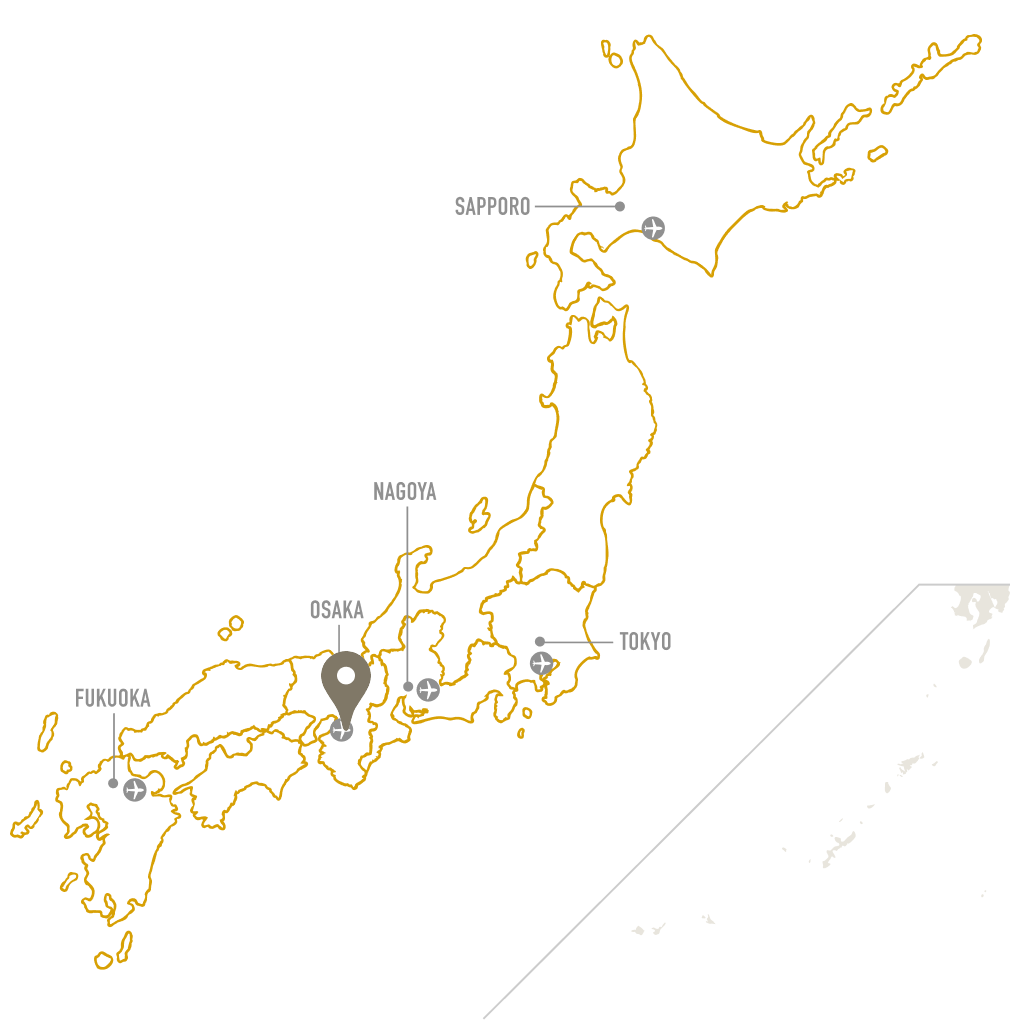
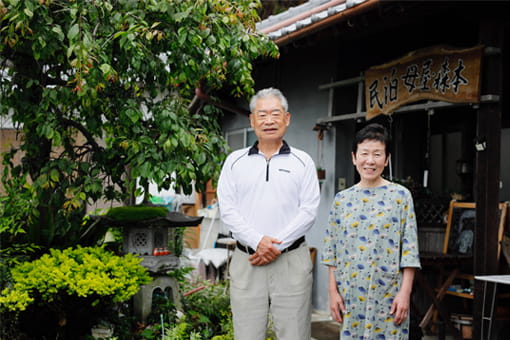
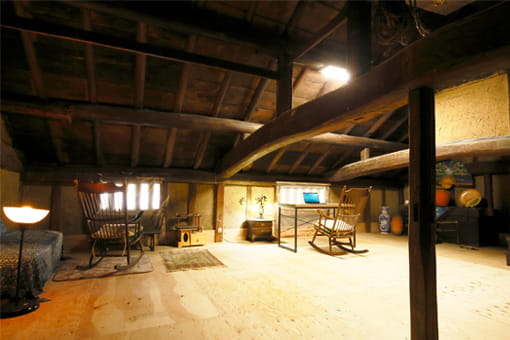
This cafe and guesthouse, built in a 120-year-old old farmhouse at the foot of Mount Kongo, offers a unique and rustic experience. Guests can dine on dishes made with local produce and enjoy harvesting and cooking vegetables from the fields. With a breathtaking view and a policy of hosting only one group per day, this traditional farmhouse makes for the perfect private getaway.

Address :
994 Nishisabi, Gose-shi, Nara Prefecture
Telephone Number :
+81 (0)90-6609-7518
Telephone Languages :
Japanese
Access :
15minute drive from Kintetsu-Gose Station (shuttle service available)
Check-in :
From 4:00 p.m.
Check-out :
10:00 a.m.
Rates :
From ¥10,000 per night with 2 meals, from ¥7,000 per night without meals
Accepted Credit Cards :
None
Bedroom :
3 rooms available for up to 8 people (no lock), Japanese futons and Western beds
Bathroom :
Lockable bathroom available, bathtub available (from check-in until check-out)
Toilet :
Western style
Meals :
Dinner, Breakfast
Wi-Fi :
Available
Website URL (Japanese Only) :
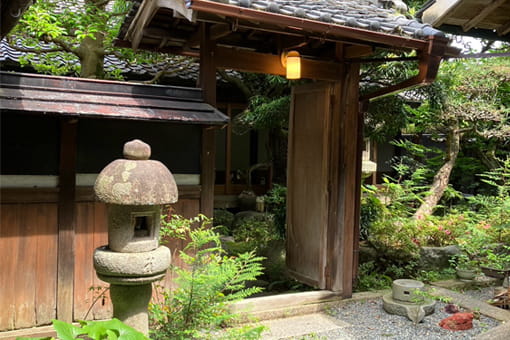
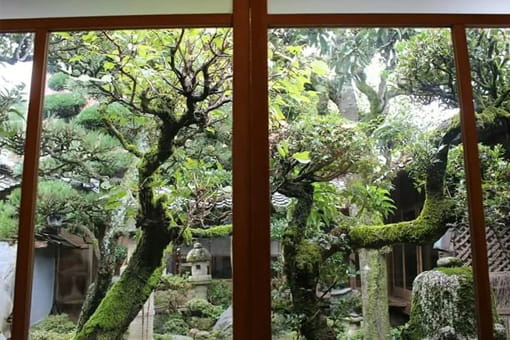
Wake up to birdsong in a beautiful 200-year-old house built in 1824. The back room, used as a bedroom, is built in the traditional Japanese shoin style, showcasing the craftsmanship of the Taisho period (1912-1925). The courtyard features an ancient Asuka stone hand basin and stunning moss garden. Guests can prepare their own meals or dine at a nearby restaurant.

Address :
166 Imazumi, Gose-shi, Nara Prefecture
Telephone Number :
+81 (0)745-67-0548
Telephone Languages :
Japanese
Access :
10-minute drive from Gose-Minami IC on Keinawa Expressway, or 10 minutes on foot from Kintetsu Ichio Station
Check-in :
2:00 p.m.–8:00 p.m.
Check-out :
10:00 a.m.
Rates :
¥12,000 per night without meals
Accepted Credit Cards :
VISA/Mastercard/AMEX/JCB
Bedroom :
Private rooms for up to 5 people (no lock), Japanese futons
Bathroom :
Lockable bathroom available, bathtub available (from check-in until check-out)
Toilet :
Western style
Meals :
Not available (catered meals can be arranged, self-catering facilities available)
Wi-Fi :
Available
Website URL :
Reservation Website URL (Japanese Only) :
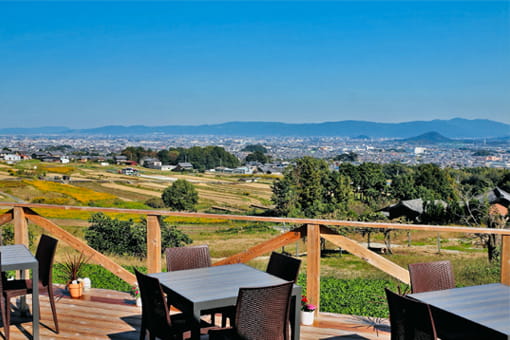
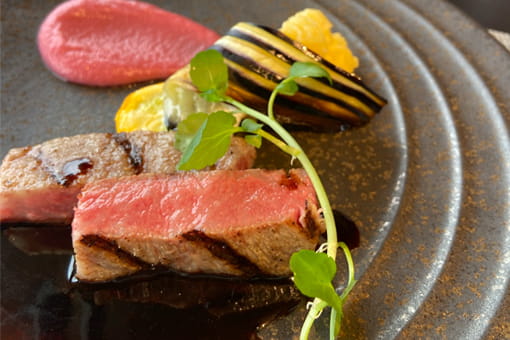
Dine on creative cuisine at the foot of Mount Katsuragi while enjoying a panoramic view of the Nara Basin. Sample dishes made with seasonal local ingredients, such as traditional Yamato vegetables, western vegetables, and herbs from the restaurant’s own garden. Enjoy a relaxing meal while gazing at the scenic Yamato Sanzan, or ‘the three mountains of Yamato,’ from this scenic spot on the ancient Katsuragi Kodo road. Reservations required.

Address :
2440-7 Kujira, Gose-shi, Nara Prefecture
Telephone Number :
+81 (0)50-3150-8551
Telephone Languages :
Japanese
Access :
From Kintetsu-Gose Station, take the Nara Kotsu Bus bound for Katsuragi Ropeway-mae to Sarumebashi, then walk for 10 minutes. Or 5 minutes by car from Kintetsu-Gose Station.
Opening Hours :
11:30 a.m.–3:00 p.m. (last order at 2:00 p.m.), 6:00 p.m.–9:30 p.m. (last order at 8:30 p.m.)
Closed :
Monday, occasional Tuesdays
Cuisine :
Western-style creative cuisine
Foreign Language Menu :
Not available
Accepted Credit Cards :
VISA/Mastercard/AMEX/JCB
Website URL (Japanese Only) :
Reservation Website URL (Japanese Only) :
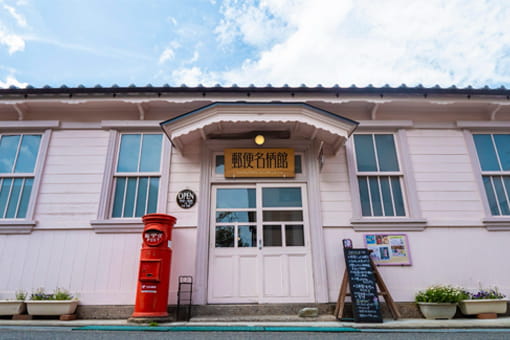
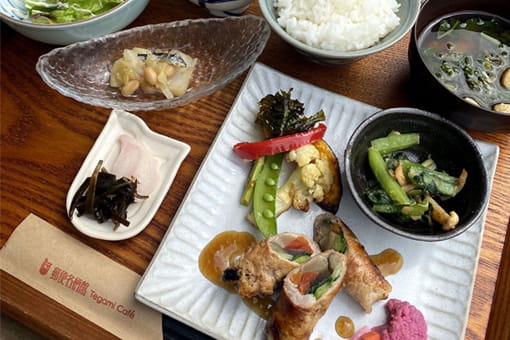
Although the Nagara Post Office closed its doors in 1975, the building has been brought back to life through a meticulous renovation and fresh new purpose. Retaining its retro charm from yesteryears, it now serves as a museum showcasing Japan’s postal service history. The adjoining cafe offers a vegetable-filled ‘Tegami Lunch’ as well as delicious sweets. The menu includes playful items like ‘postal stamp’ coffee, adding a whimsical touch to your dining experience.

Address :
326-1 Nagara, Gose-shi, Nara Prefecture
Telephone Number :
+81 (0)745-60-8386
Telephone Languages :
Japanese
Access :
10-minute drive from Kintetsu-Gose Station
Opening Hours :
11:00 a.m.–4:00 p.m. (last order at 3:30 p.m.)
Closed :
Tuesday, Wednesday
Cuisine :
Japanese
Foreign Language Menu :
Not available
Accepted Credit Cards :
None
Website URL (Japanese Only) :
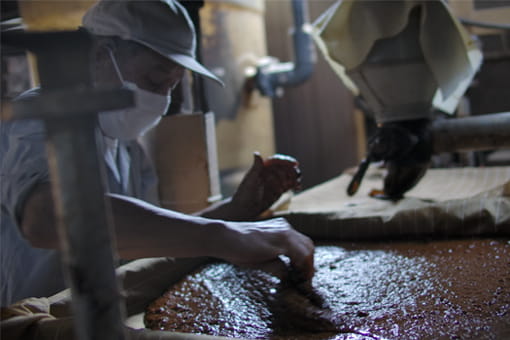
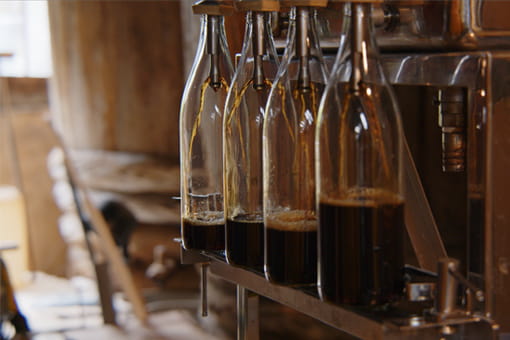
Visit Katakami Soy Sauce, a small soy sauce brewery located in a quiet village at the foot of the mountains. Visitors can observe the slow brewing of Nara-grown soybeans in cherished cedar vats and learn about the traditional soy sauce making process by tasting, mixing, and bottling their own soy sauce.

Address :
329 Moriwaki, Gose-shi, Nara Prefecture
Telephone Number :
+81 (0)745-66-0033
Telephone Languages :
Japanese
Access :
10-minute drive from Kintetsu-Gose Station
Duration :
30 minutes to 1 hour (time varies depending on the number of people)
Fee :
¥5,000
Languages Supported :
Japanese
Accepted Credit Cards :
None
Website URL (Japanese Only) :
Reservation Website URL (Japanese Only) :
Reservations :
Reserve in advance via the above website
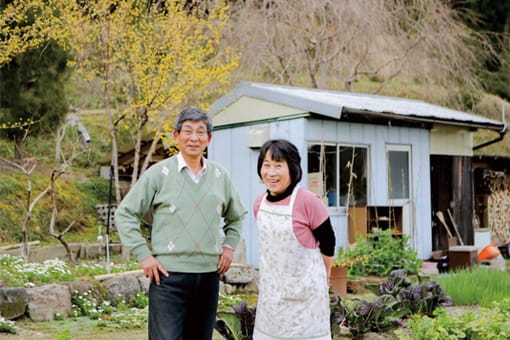
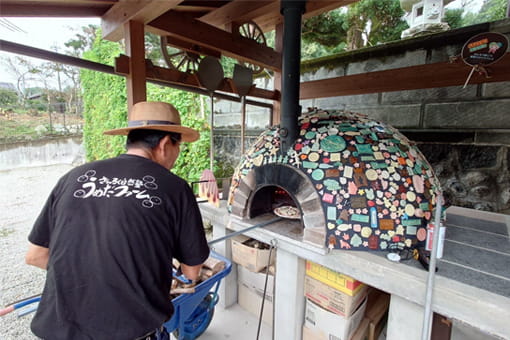
Sanroku Nature School Umeda Farm offers a range of activities aimed at vitalizing the local community. Options include pizza baking, rice cake pounding, Yamato Toki salt making, moxa making, vegetable harvesting, rice planting and harvesting, medicinal herb picking, chopping firewood with a hatchet, and more. Additionally, guests can enjoy mountain climbing on Mount Kongo, including leisurely walks along the Asahara Temple Road.

Address :
606 Mashi, Gose-shi, Nara Prefecture
Telephone Number :
+81 (0)80-4010-3600
Telephone Languages :
Japanese, English, Chinese
Access :
10-minute drive from Kintetsu-Gose Station
Duration :
1 hour
Fee :
¥3,000
Languages Supported :
Japanese, English, Chinese
Accepted Credit Cards :
None
Website URL (Japanese Only) :
Reservations :
Call or email sanroku_umeda@ybb.ne.jp
Hokkaido
Tohoku
Hokuriku/
Shinshu
Kanto
Tokai
Kansai
Shikoku
Kyushu
Okinawa